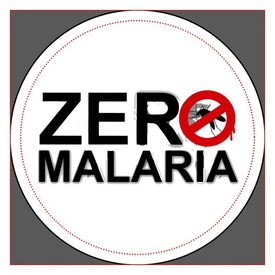
Jamaica remains Malaria free
Jan. 6, 2020
The Ministry of Health & Wellness notes the recent reports on Malaria cases in Jamaica but wishes to advise the public that as of 2012, Jamaica was re-instated on the Official Register of areas where Malaria eradication was achieved.
Since then, Jamaica’s health system has detected only imported cases of the mosquito-borne disease, which is caused by the malaria parasite that is transmitted to humans by the infected bite of female Anopheles mosquitoes.
The island has been able to prevent the re-introduction of malaria by public health surveillance, identifying imported cases and putting in place the necessary control measures to prevent local spread, even in the presence of imported malaria. Key strategies include early detection, prompt treatment of cases, vector control, public education and inter-sectoral collaboration.
Since November 2019, Jamaica has identified two imported cases of malaria and appropriate treatment and public health interventions have been made to prevent transmission. Neither of those two individuals reside in Jamaica and one of these persons has left the country.
“The cases have been effectively contained by the public health system so that there has been no local spread of the disease,” said Dr Nicole Dawkins-Wright, Director of Emergency, Disaster Management and Special Services at the Ministry of Health and Wellness.
“The public is reassured that the Public Health Department has found no breeding site for the Anopheles mosquito, which is the mosquito that transmits malaria, at any of the locations visited by the two cases before arrival of the individuals and on subsequent assessments since identification of the cases. The Health Department executed the standard operating procedures for clinical and public-health assessments and interventions,” she added.
Malaria is a potentially fatal disease caused by the Plasmodium falciparum parasite. The disease produces chills, headache, a high fever, and other flu-like symptoms. Official diagnosis is, however, necessary to confirm the presence of the virus.
The Ministry cautions travellers to regions where malaria is present to take steps to prevent a reintroduction of the disease into the island, and limit the spread of malaria by:
- taking anti-malarial drugs before travelling to endemic areas;
- wearing repellent and clothes that cover the body;
- sleeping under mosquito nets;
- getting treatment promptly when symptoms appear so as to prevent disease progression and spread; and
- keeping stored water covered and reduce mosquito breeding sites around dwellings.
The Ministry wishes to reiterate that all measures to prevent transmission has been taken. Vector control is the main way to prevent and reduce transmission of mosquito borne diseases such as malaria and dengue. Jamaica managed to maintain its malaria-free status through surveillance, early detection, and rapid isolation and treatment of all cases and appealed to all Jamaicans to be vigilant.
We encourage the public to play their part in keeping Jamaica malaria-free by reporting to public health officials any unofficial entry of foreigners. Members of the public should also ensure that they protect themselves before visiting countries that have ongoing malaria transmission.